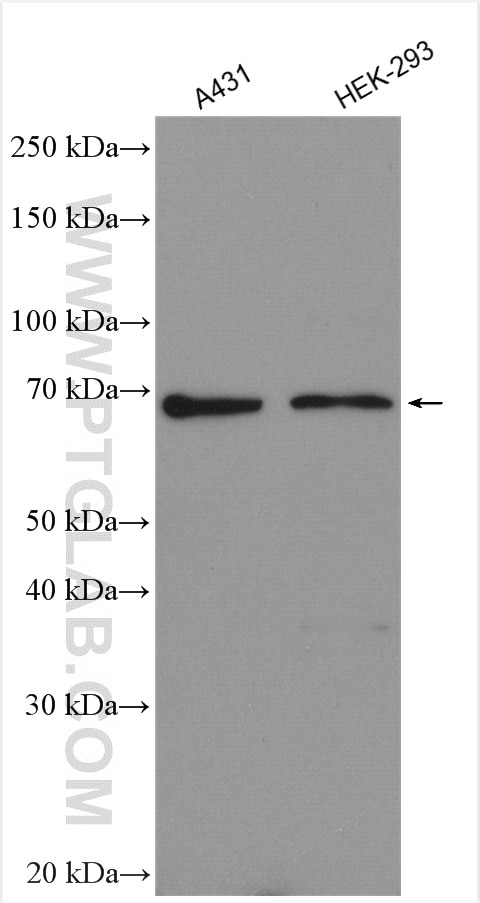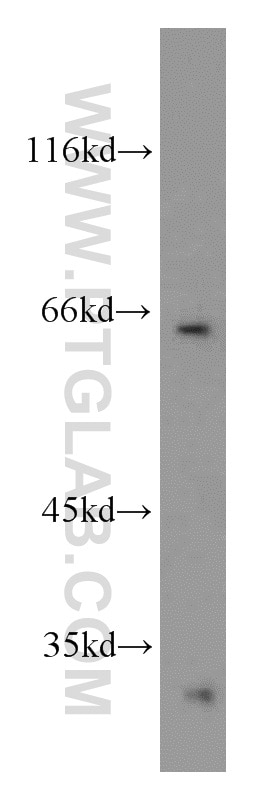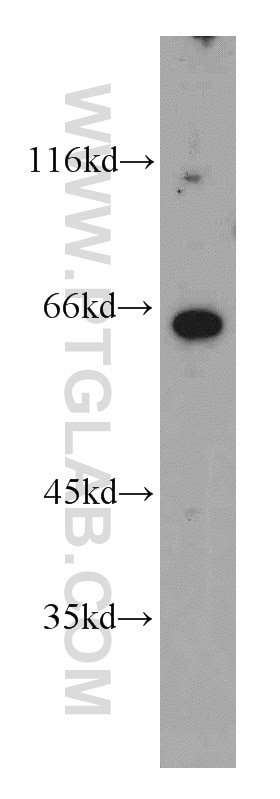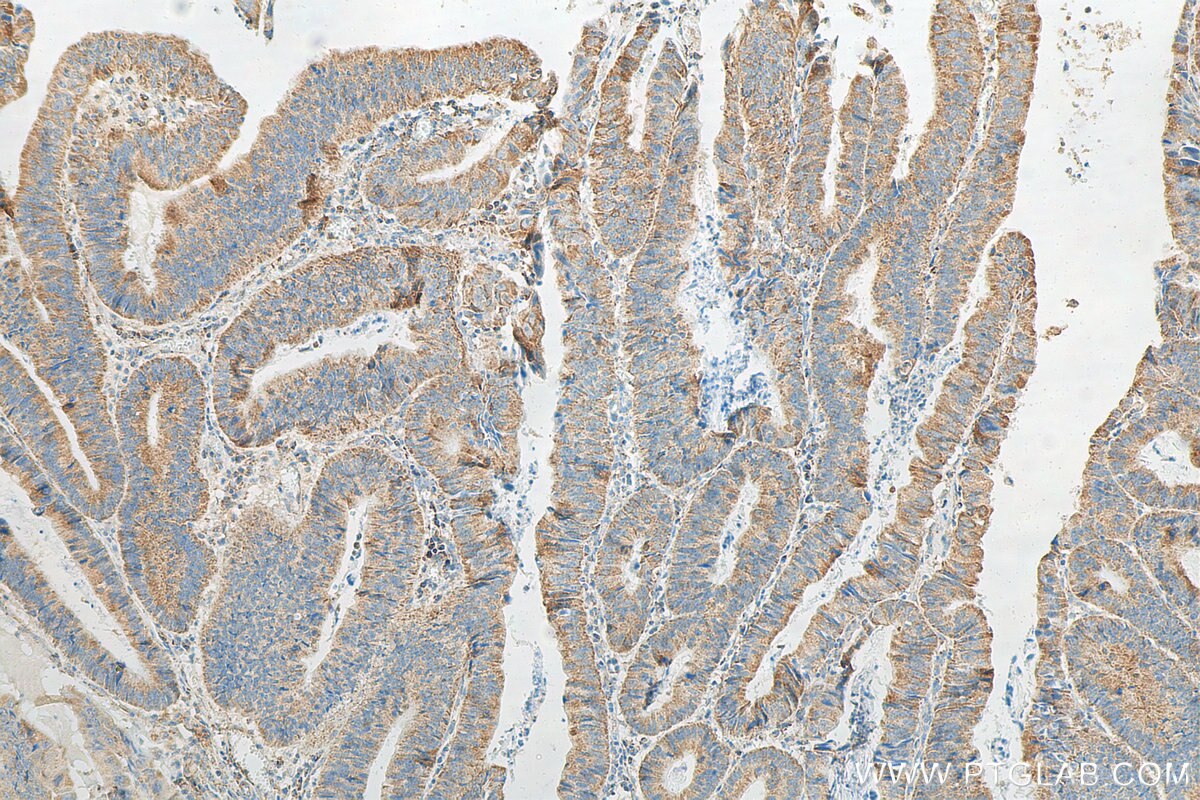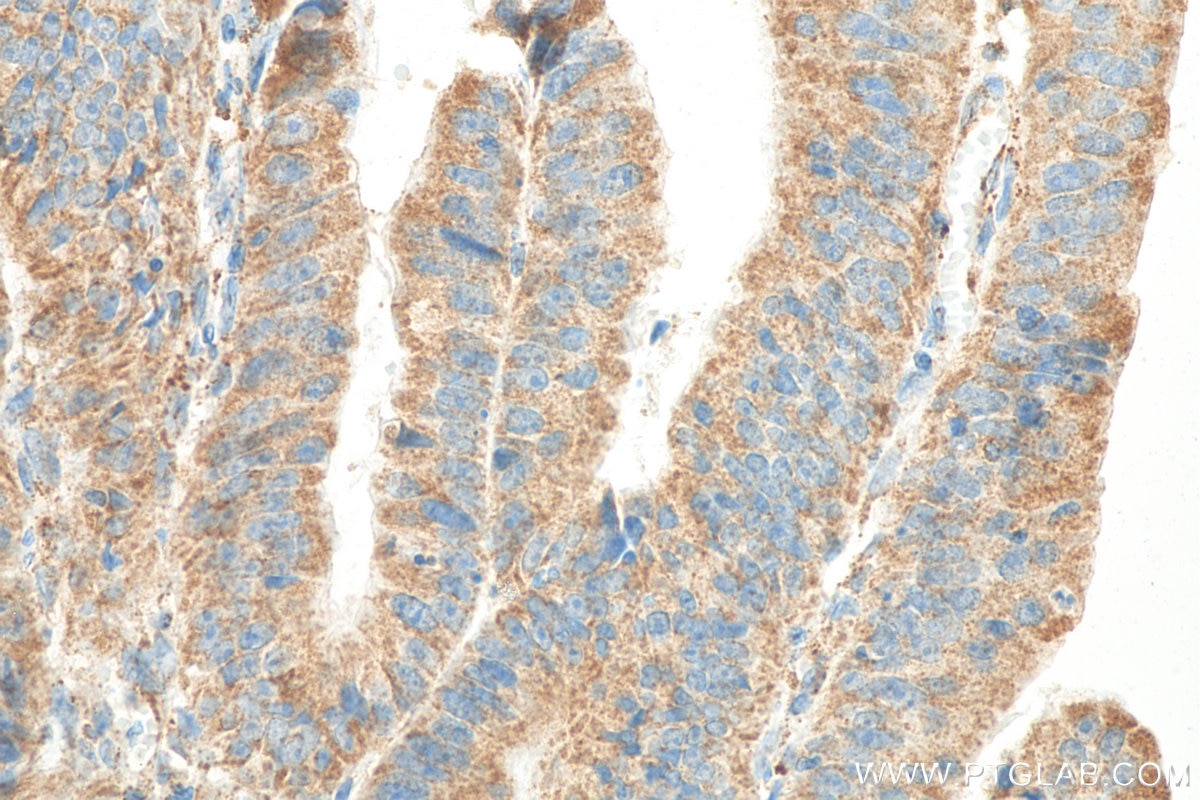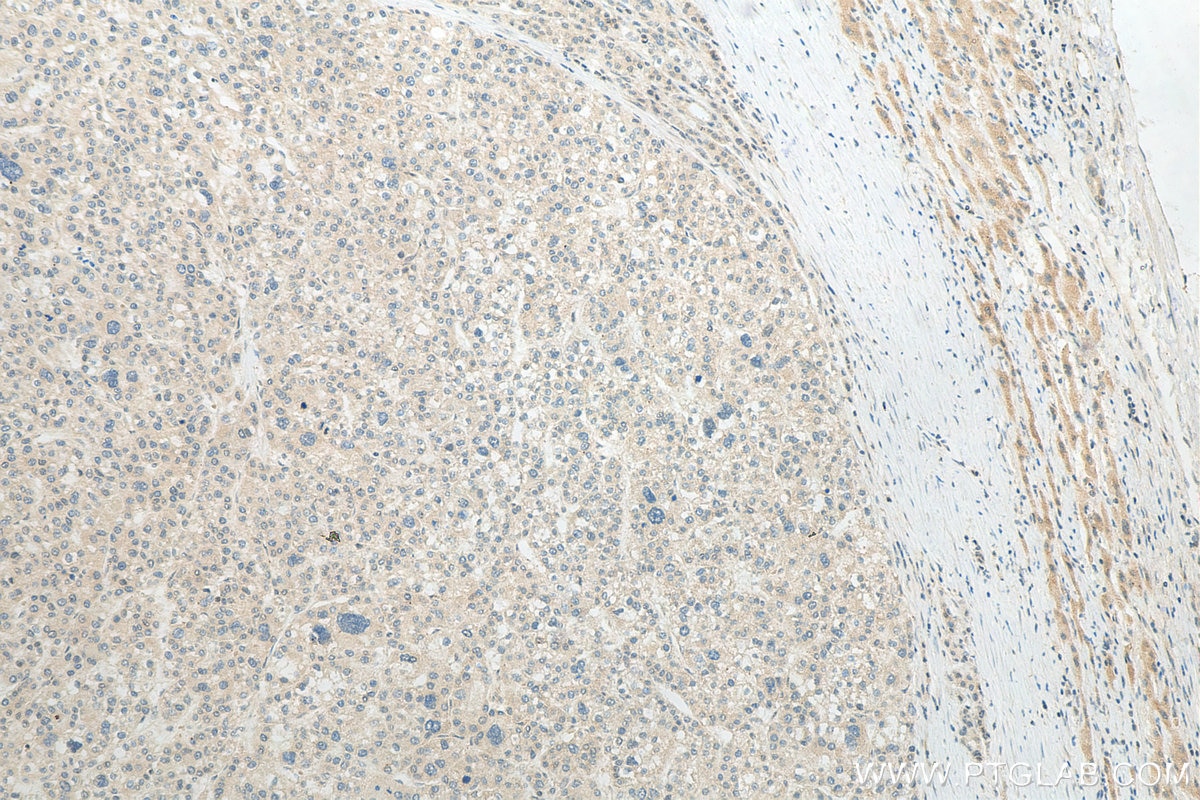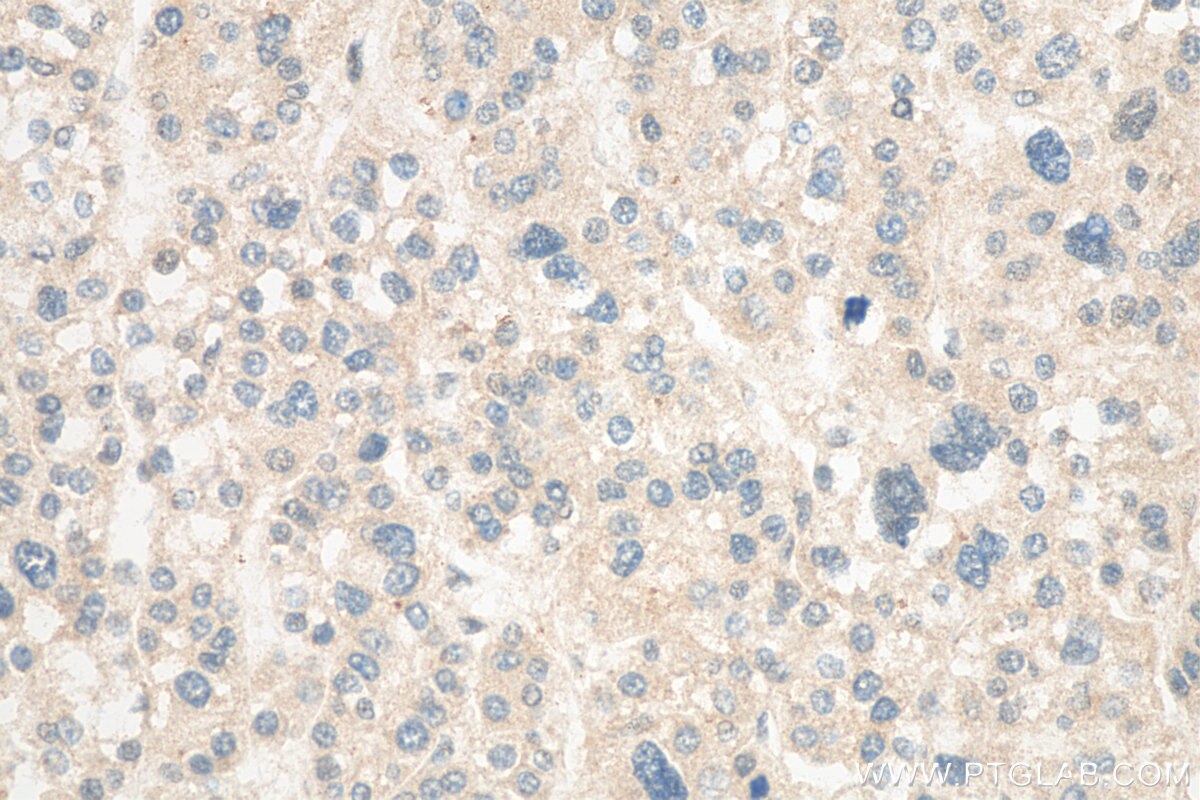Anticorps Polyclonal de lapin anti-Progranulin/PGRN
Progranulin/PGRN Polyclonal Antibody for WB, IHC, ELISA
Hôte / Isotype
Lapin / IgG
Réactivité testée
Humain
Applications
WB, IHC, IF, ELISA
Conjugaison
Non conjugué
N° de cat : 10053-1-AP
Synonymes
Galerie de données de validation
Applications testées
| Résultats positifs en WB | cellules A431, cellules HEK-293, cellules MCF-7 |
| Résultats positifs en IHC | tissu de cancer du côlon humain, tissu de cancer du foie humain il est suggéré de démasquer l'antigène avec un tampon de TE buffer pH 9.0; (*) À défaut, 'le démasquage de l'antigène peut être 'effectué avec un tampon citrate pH 6,0. |
Dilution recommandée
| Application | Dilution |
|---|---|
| Western Blot (WB) | WB : 1:500-1:1000 |
| Immunohistochimie (IHC) | IHC : 1:50-1:500 |
| It is recommended that this reagent should be titrated in each testing system to obtain optimal results. | |
| Sample-dependent, check data in validation data gallery | |
Applications publiées
| IHC | See 1 publications below |
| IF | See 2 publications below |
Informations sur le produit
10053-1-AP cible Progranulin/PGRN dans les applications de WB, IHC, IF, ELISA et montre une réactivité avec des échantillons Humain
| Réactivité | Humain |
| Réactivité citée | Humain |
| Hôte / Isotype | Lapin / IgG |
| Clonalité | Polyclonal |
| Type | Anticorps |
| Immunogène | Progranulin/PGRN Protéine recombinante Ag0010 |
| Nom complet | granulin |
| Masse moléculaire calculée | 64 kDa |
| Poids moléculaire observé | 64 kDa |
| Numéro d’acquisition GenBank | BC010577 |
| Symbole du gène | Granulin |
| Identification du gène (NCBI) | 2896 |
| Conjugaison | Non conjugué |
| Forme | Liquide |
| Méthode de purification | Purification par affinité contre l'antigène |
| Tampon de stockage | PBS with 0.02% sodium azide and 50% glycerol |
| Conditions de stockage | Stocker à -20°C. Stable pendant un an après l'expédition. L'aliquotage n'est pas nécessaire pour le stockage à -20oC Les 20ul contiennent 0,1% de BSA. |
Informations générales
GRN, also known as PGRN or PCDGF, is a cysteine-rich protein of 68.5 kDa that is typically secreted into a highly glycosylated 88 kDa form. PGRN is a unique growth factor that plays an important role in cutaneous wound healing. It has an anti-inflammatory effect and promotes cell proliferation. When PCDGF is degraded to several 6-25 kDa fragments, called granulins (GRNs) by neutrophil proteases, a pro-inflammatory reaction occurs. PGRN is widely expressed, particularly in epithelial cells, immune cells, neurons, and chondrocytes. High levels of PGRN expression have been reported in human cancers, and its expression is closely correlated with the development and metastasis of several cancers. The recent discovery that mutations in the gene encoding for pro-granulin (GRN) cause frontotemporal lobar degeneration (FTLD), and other neurodegenerative diseases leading to dementia, has brought renewed interest in progranulin and its functions in the central nervous system. Several in vitro studies have revealed that PGRN is classified into two isoforms according to its glycosylation status, the glycosylated immature isoform (58-68 kDa) and the fully glycosylated mature secretory isoform (∼88 kDa) (PMID: 25838514).
Protocole
| Product Specific Protocols | |
|---|---|
| WB protocol for Progranulin/PGRN antibody 10053-1-AP | Download protocol |
| IHC protocol for Progranulin/PGRN antibody 10053-1-AP | Download protocol |
| Standard Protocols | |
|---|---|
| Click here to view our Standard Protocols |
Publications
| Species | Application | Title |
|---|---|---|
Chin Med J (Engl) Expression of PC cell-derived growth factor and vascular endothelial growth factor in esophageal squamous cell carcinoma and their clinicopathologic significance. | ||
PeerJ Integrated multiomics analysis highlights the immunosuppressive role of granulin precursor positive macrophages in hepatocellular carcinoma |
